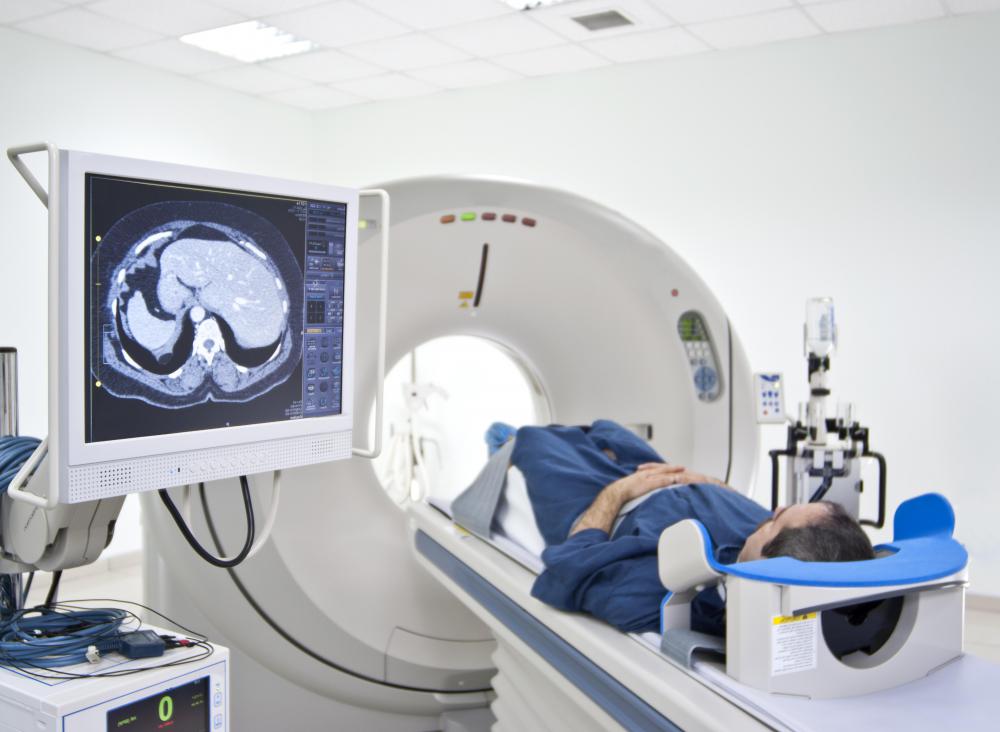At WiseGEEK, we're committed to delivering accurate, trustworthy information. Our expert-authored content is rigorously fact-checked and sourced from credible authorities. Discover how we uphold the highest standards in providing you with reliable knowledge.
What are the Most Common Pacemaker Complications?
Pacemaker complications typically fall under three categories: implantation-related injury, post-implantation malfunction, and device interference. Implantation-related injury involves complications that occur during the surgery that implants the pacemaker into the patient's chest, such as hemorrhaging and infection. Post-implantation malfunction occurs when the device encounters troubles as it operates, most often as a result of wear and tear. Device interference, on the other hand, refers to malfunctions caused by electromagnetic fields and signals caused by other devices, such as magnetic resonance imaging (MRI) scanners and mobile phones. Among these three categories, post-implantation malfunction is the most commonly-occurring.
The initial risks of a pacemaker are present in the surgical operation that implants the device into a patient's chest. If the attending surgeon isn't careful with his instruments, he can accidentally injure the heart or the surrounding tissue. This can lead to heavy bleeding and infection if the wound isn't treated immediately. These incidents rarely ever occur, however.

The most common types of pacemaker complications involve device malfunctions after successful implantation. Although it is extremely rare for pacemakers to malfunction on their own, patients are often responsible for the complications they encounter. The most common issues arise when patients are unable to adjust to the sensation of a pacemaker and end up fiddling around with it. This sort of behavior can cause the pacemaker to function irregularly or cease operation entirely. Depending on the severity of these cases, pacemaker complications include increased fatigue, slight chest pains, and possibly heart failure.

An extremely high level of activity can also cause a pacemaker to dislodge. The "runaway pacemaker" can then stimulate muscles beyond the heart. This type of pacemaker-induced fibrillation can cause an incredible amount of discomfort for the patient, often leading to weakness, dizziness, and fainting. The device's movement might also damage the surrounding tissue, increasing the risk of pacemaker infection.

Certain electromagnetic fields and signals of other devices can also lead to pacemaker complications. The magnetic field of an MRI scanner, for example, can interrupt the timing of a pacemaker, resulting in arrhythmia. Mobile phone signals can affect pacemakers in a similar fashion. Certain types of radiation, such as those used in x-rays and cancer treatment, can damage the device's circuits, leading to major pacemaker complications.
Due to these risks, patients who undergo pacemaker implantation are often given a set of guidelines to follow. These guidelines, which include activities to avoid and how to properly use other devices, are meant to lower pacemaker risks. It is imperative that patients follow these guidelines as closely as possible so as to avoid pacemaker complications. Regular maintenance check-ups also reduce the risk of a pacemaker malfunction by a significant amount.
AS FEATURED ON:
AS FEATURED ON:













Discuss this Article
Post your comments